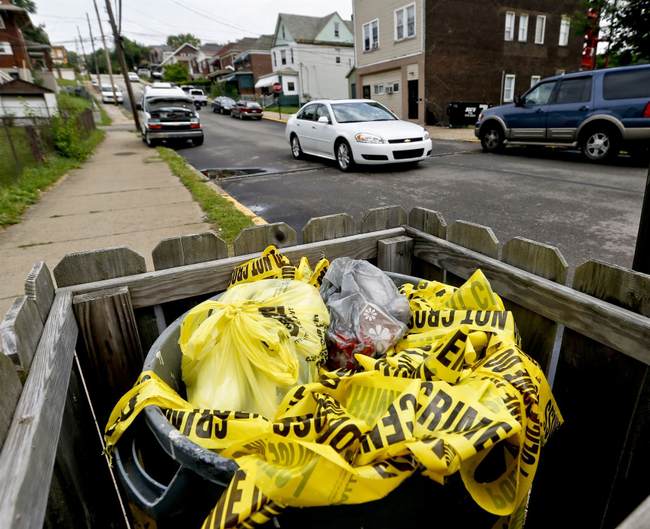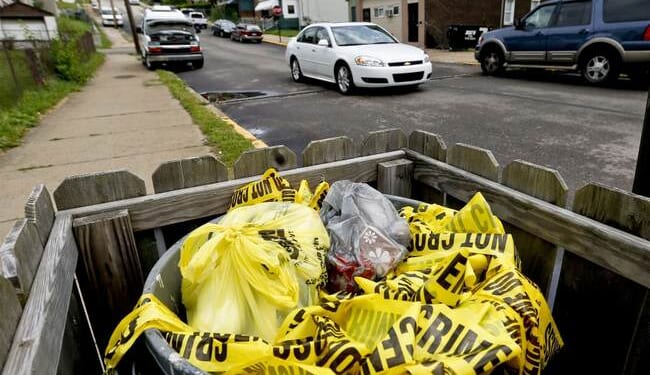
There are, according to my handy-dandy search on Google, 528,000 households in San Diego.
Granted, many are communal, meaning not single-family homes, but let’s just say that visiting every single one of them is a monumental task. Yet the City of San Diego has committed to visiting every single one of them once a year to ensure that…you separate your trash, your recyclables, and your organic waste according to their rules.
Well, sort of. They aren’t even really doing that. They are sending out bureaucrats to lift the lids and glance in, to see if you put the wrong sort of trash on the top of the pile, visible to the inspectors.
Is there a better definition of having a “Do-nothing Government Job?” Lid Lifters in the City of SD getting $70k per year for looking in people’s trash which only adds to the already eye-watering cost of living! This beautiful City needs new leadership! pic.twitter.com/C6Jw0H6jEi
— Derek Falconer (@LifeOnTheFoils) November 18, 2025
Leave aside, for the moment, the question of whether getting people to sort their trash at a granular level is a good use of citizens’ time and efforts, or whether bureaucrats should be spying on citizens’ trash bins; you still can question whether actually sending out people being paid $70,000 a year is the most efficient way to accomplish those goals.
First, a bit of context: nearly 70% of collected recyclables are not, actually, recycled. Aside from aluminum cans, it’s a pretty stupid policy. Tons of material that people have carefully sorted, wasting enormous time and effort and annoying the hell out of people like me, wind up in landfills anyway. Environmentalists will explain that even this policy is better than nothing, because it “educates” people about the waste they produce.
San Diego to employ lid lifters to check in predawn darkness whether residents are recycling as required. Offender’s trash will not be collected.https://t.co/zalYunIW2Z
— wretchardthecat (@wretchardthecat) November 16, 2025
To which I say: screw you. Write an article. Put up a billboard. Put a documentary that nobody will watch other than fellow greenies on PBS, so I can defund it.
But aside from my pet peeve, there is a much more serious point about how government works. One has to wonder whether the City of San Diego has solved all problems more significant than sorting trash. If, for instance, there are potholes that are causing millions or billions of dollars in damage to vehicles and impeding the mobility of people, goods, and services, is this the best use of resources?
𝐒𝐀𝐍 𝐃𝐈𝐄𝐆𝐎 𝐍𝐎𝐖 𝐏𝐀𝐘𝐒 $𝟕𝟎𝐊/𝐘𝐄𝐀𝐑 𝐅𝐎𝐑 𝐀 “𝐋𝐈𝐃 𝐋𝐈𝐅𝐓𝐄𝐑”
Yes, really.
The city is literally hiring people to snoop through your trash at 6 a.m. to make sure you’re recycling properly.
While California can’t stop crime…… pic.twitter.com/2cG6Nov3Zy— M.A. Rothman (@MichaelARothman) November 17, 2025
The question answers itself. There are countless problems the city should be focused on rather than this. Especially since the visits will result only in a tag telling people to do better. In other words, accomplishing the same goal as an email saying “please sort your trash.” That tag will go into the trash, and maybe not the right bin.
So why do this?
Anarchotyranny is where the same state that allows homeless vagrants to use heroin while sprawled out on the public streets also monitors your trash to make sure the plastic bottles are in the right can https://t.co/b9zZEunkY2
— The American Tribune (@TAmTrib) November 17, 2025
Many reasons. First, it is performative. “Look, we are working.” Second, nanny staters love telling you what to do.
And, most importantly, it employs people in easy makework. Fixing potholes takes work. Lifting a trash lid and maybe slapping on a sticker? Not so much.
Join Hot Air VIP and use promo code FIGHT to get 60% off your membership.
















